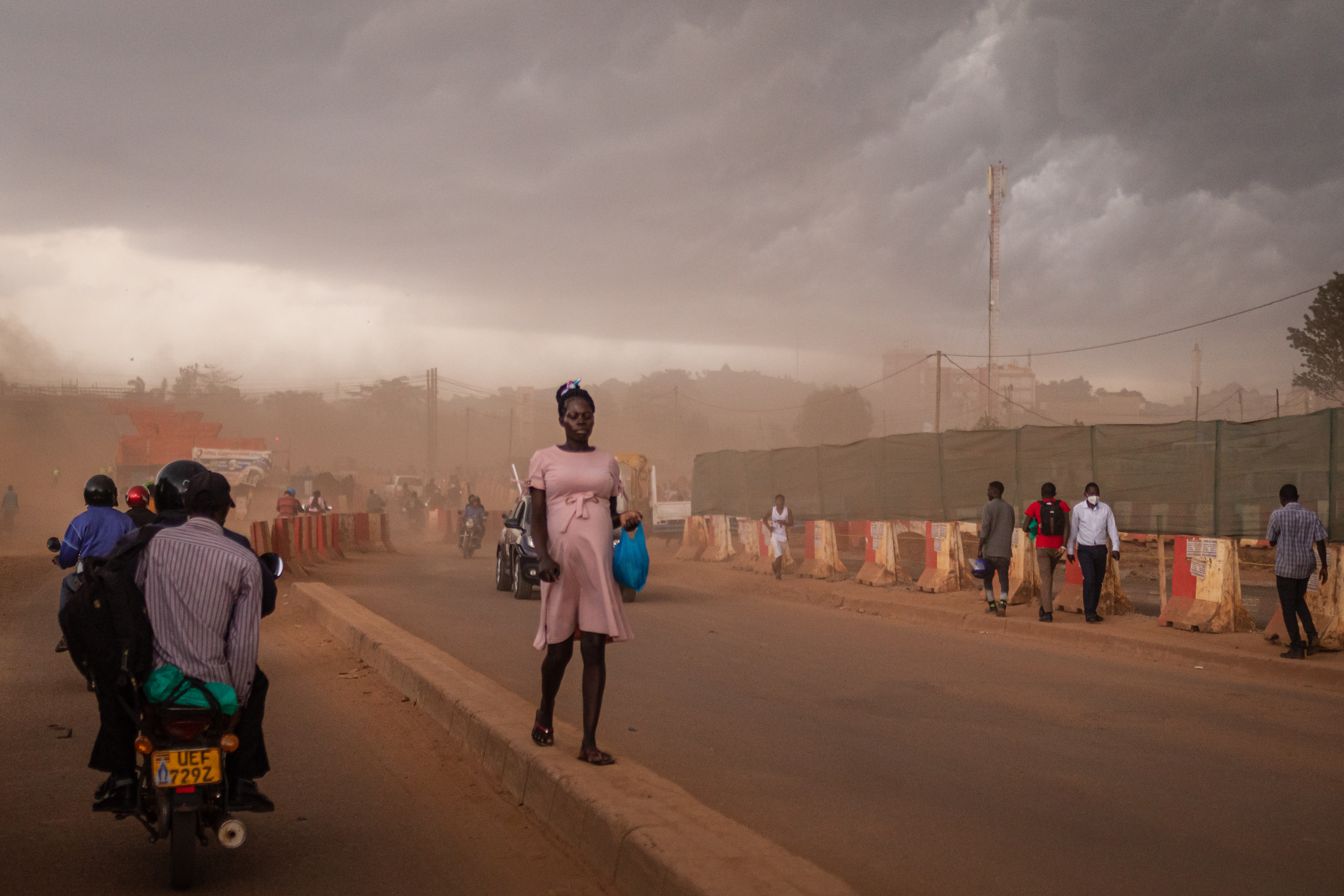The Uganda Press Photo Award shines a light on the thrills and fears of our new realities.
The digital era proposes that in order to live a productive life, you must first cater to your mental, physical and spiritual well-being. But what happens when this is not an option for you, your neighbour, and your neighbour’s neighbour? The images featured in this exhibition weave a story of change and the (im)possibilities that result from a time when we can only speak of our dreams of productivity.
The reality is that we are all grappling with change; at an individual, community and even an environmental level. There is tension, as cities push to modernise at the expense of those on the fringes. Mother Nature prioritises herself without regard to those who rely on her for their lives, while kin turns against kin in what could be one of the worst genocide of our time.
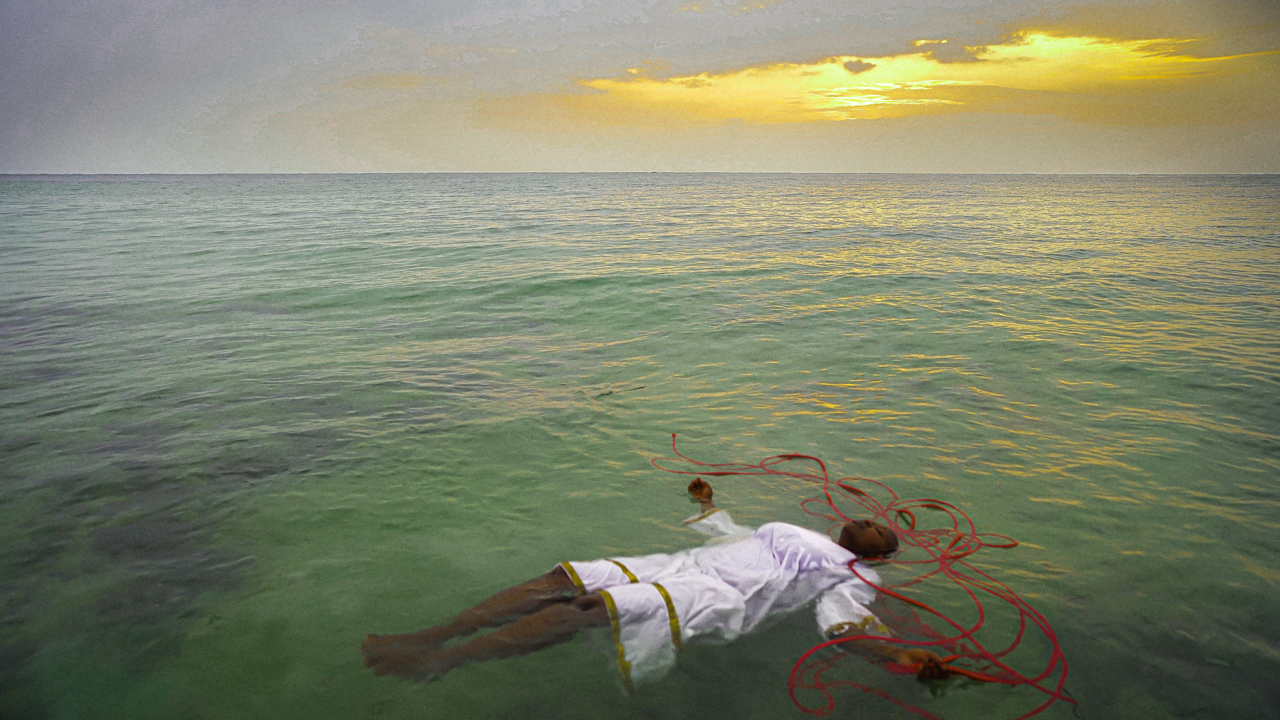
Experience and memory calcify into the spine of who we are, but the uncertainty of the future often shakes up our sense of stability. When a crisis occurs, the first thing we do is pull ourselves to the familiar, looking for some healing, whether psychological, emotional or spiritual. My Odyssey years have required me to pursue this quest of what my purpose and aspiration in life is, and so I began at square one, home.
The photographers shown here, selected from all over the East African region, eloquently share a true narrative of Africa at a time when we are seeking to merge ideas of individuality as showcased by the Global North, and those that were the glue for communities that have been the foundations of many countries in the Global South.
In her image, About Introspection XII, Margaret Njeri Ngigi invites us to examine what grounds us amidst this chaos. Her image asks us to journey to familiarity in order to feel grounded, while also asking how one can identify home when there is an interference.
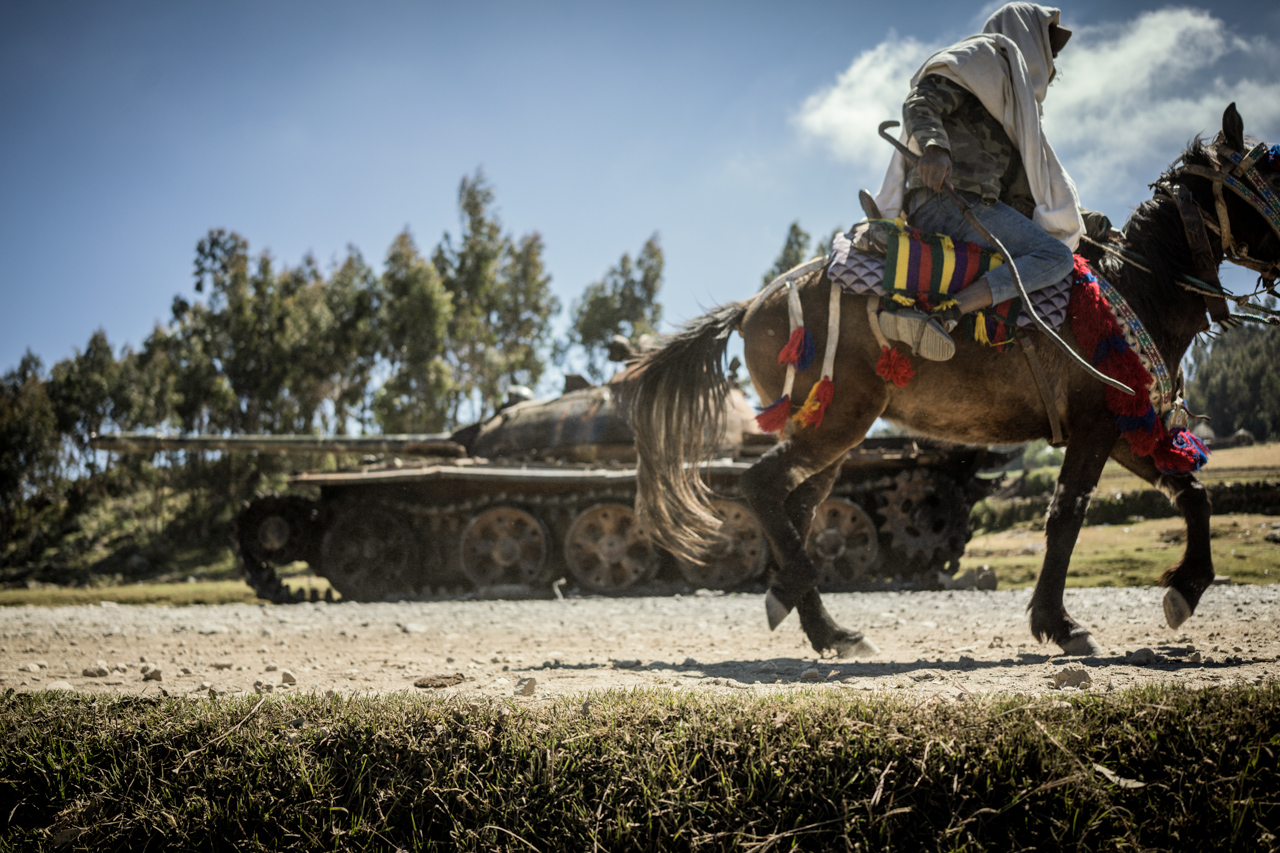
Since 2020 the north of Ethiopia has been gripped by a civil war between Tigrayan separatists and the central government of Ethiopia and its Eritrean allies. Both sides stand accused of atrocities, and both sides have suffered horrifying losses, both military and civilian. Meanwhile, the war remains largely invisible internationally because of restrictions on reporting. In these images, we see empty bullet casings and soldiers covering their noses as they navigate the scene of a massacre of civilians, and schools and churches suffering the same fate as tanks and fighters, while a civilian population finds itself trapped between two armies and used as a pawn in the conflict.
In Searching for Peace Amidst Chaos, Amanuel Sileshi shares a glimpse of wrenching scenes of displacement and disruption brought about as a result of the violence that has plagued Tigray, Ethiopia since the civil war erupted not long after the onset of the COVID19 pandemic in 2020. While many of us were faced with new realities because of the multiple lockdowns in many countries around the world, Tigrayans’ reality was, and continues to be a triple dose of displacement, isolation, and disruption.
Meanwhile Gordwin Odhiambo’s photo story A Changing Community and the Fears Ahead, though situated in Nairobi, reflects a broader failure by many African governments to properly shield their citizens against the atrocities of displacement and the consequences thereafter.
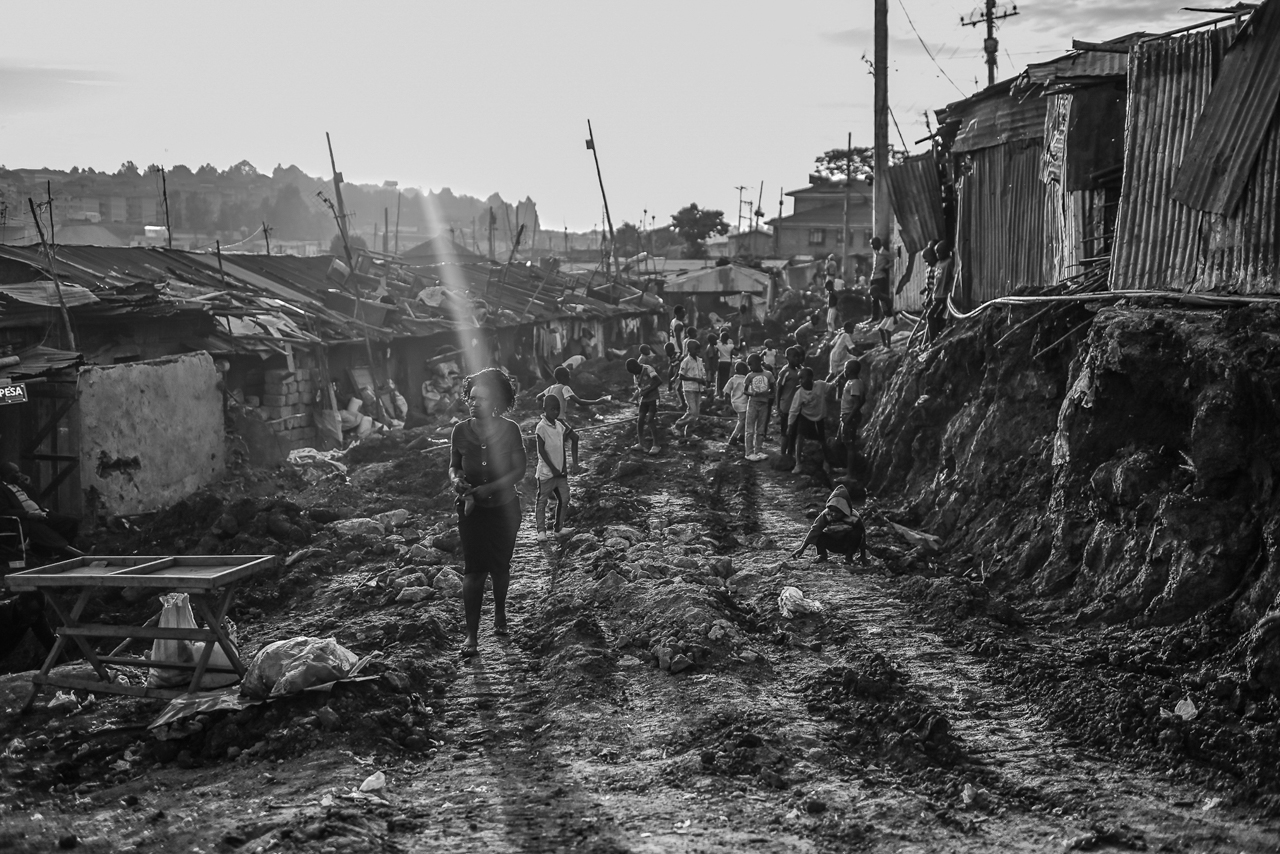
Nairobi is one of the world’s fastest-growing urban spaces. But for communities located near its centre, in historically low-income areas that served the growing city with the cheap workers needed to staff its booming businesses, the mood is grim. Huge infrastructure projects in search of new land are turning their attention to informal settlements and previously unattractive sites. Even when the resulting evictions do not lead to human rights abuses, they still shatter communities. This project explores these changing neighbourhoods and the lives of those experiencing the loss of their homes. It addresses the decisive and divisive development policies in the housing system and their consequences for access to social wellbeing in these uncertain times, during and after the pandemic. For those of us born and raised in Nairobi, the sense of place we used to have while growing up has drastically changed. New structures, political changes and waning housing affordability leave us facing an uncertain future in and around the city that we call home.
The far reaching effects can be seen in this year’s winner of the East African Photography Award in the singles category, Man with Nobody, submitted by Ammar Abdallah Osman. In this image, an elderly man sits cross legged on a blue plastic chair amidst several other similar empty chairs. Set in Sudan, the image foretells a chilling possibility of the isolation, much like in Tigray, that we could potentially experience should we fail to collectively negotiate a future that is productive for the self, community, and environment.
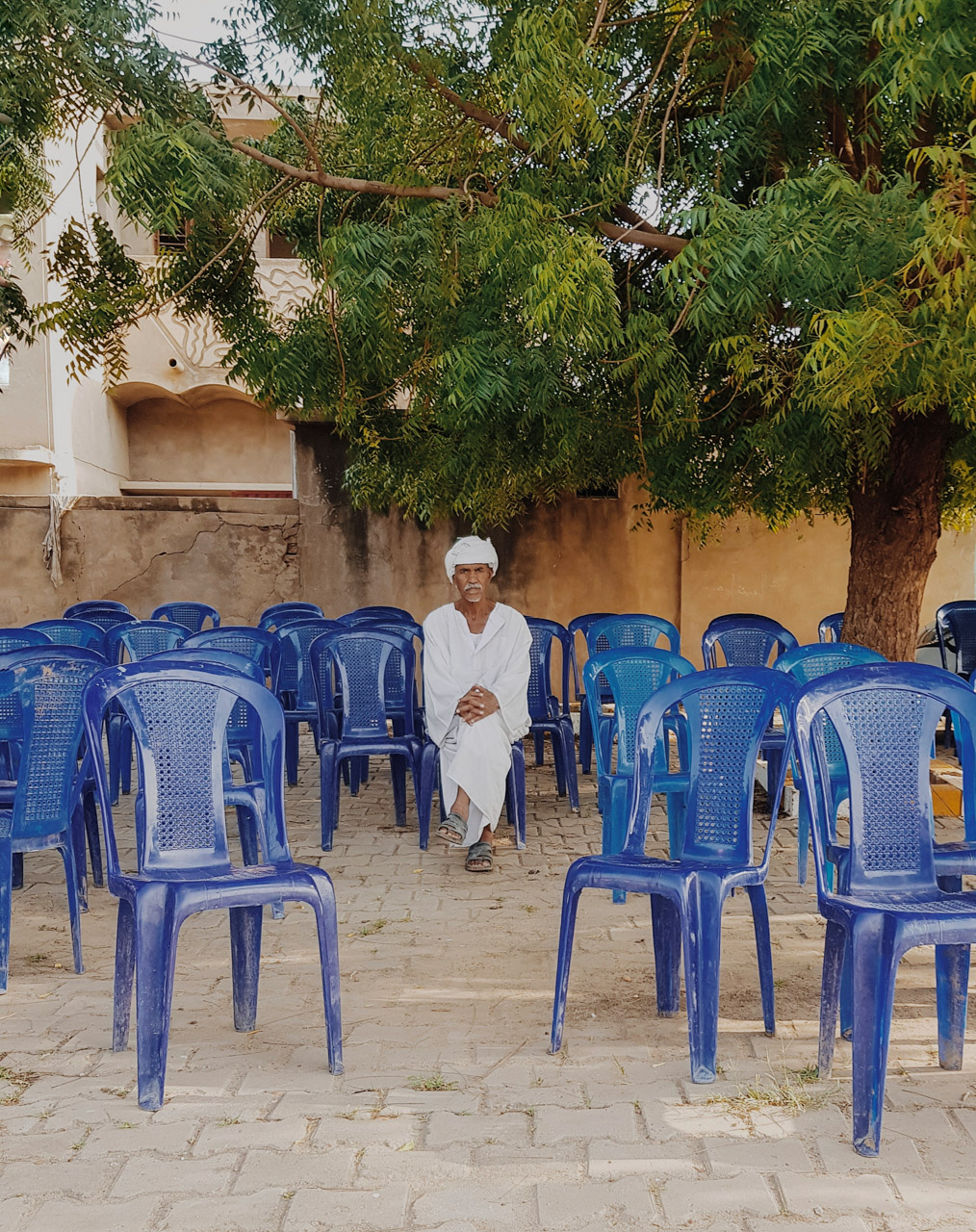
So, how do we think about home when those who are supposed to protect us have a part to play in the upending of our groundedness? Metche Jaafer’s 40 Nights of Darkness proposes that (be)holding the product of change does not equate to stepping into the boldness of the newness that escorts the product of change.
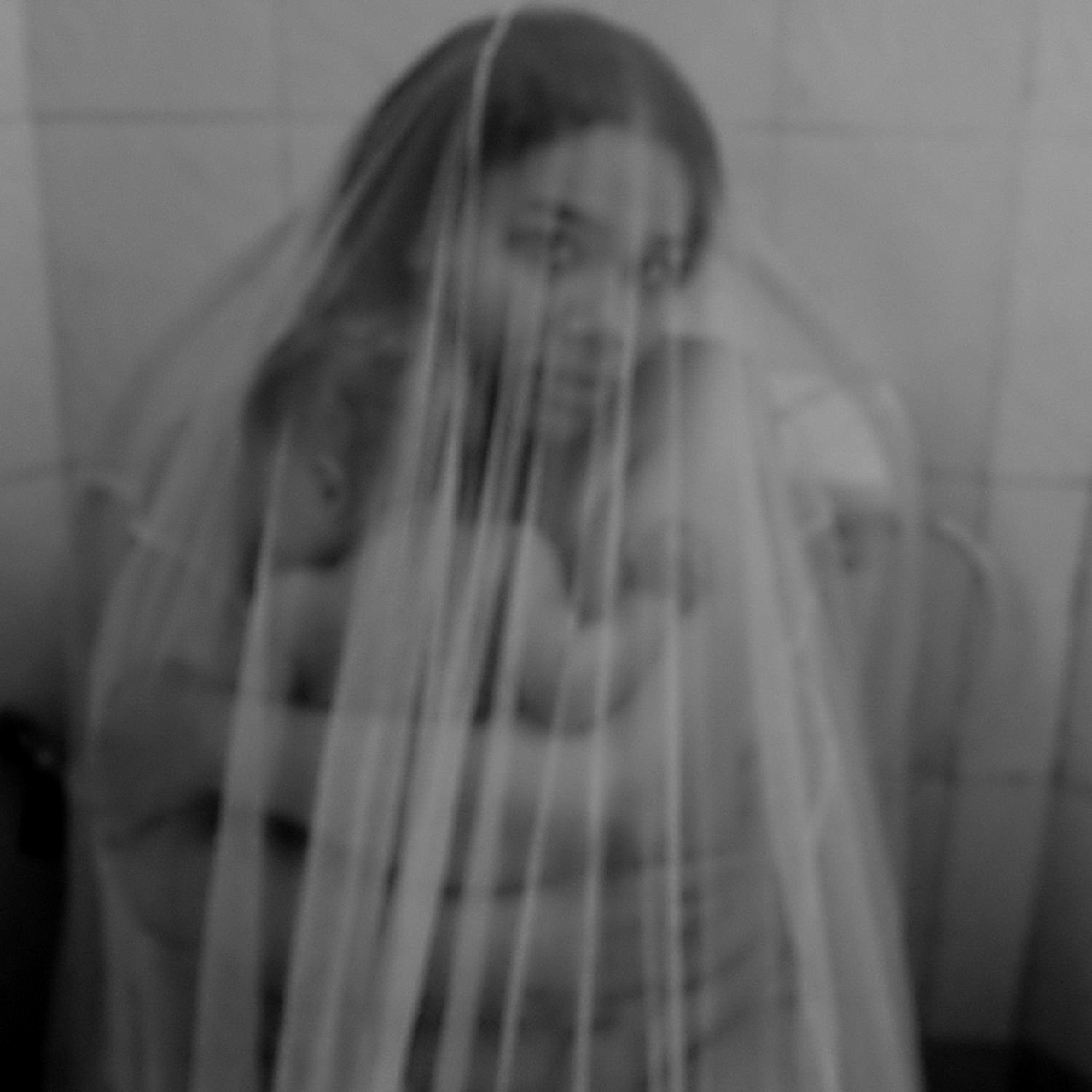
How does it feel to have a baby? And how does it feel to be a mother? These are completely two different questions! It’s the difference between choosing and deciding. Going through postpartum depression felt like going through the five stages of grief, and it really felt like there was something wrong with who I am as a person and I was doubting myself as a mother. Coming out of the dark tunnel of the depression was like rising from the ashes, like a phoenix. The love I have for my daughter taught me to love myself, and it was like no other love I ever knew.
Change requires transformation but the more we hide from the tensions that arise within us, the harder it becomes for us to assimilate to our new realities. However like Robert, the ironmonger in Andrew Kartende’s photo series titled Next Life about recycling and regeneration in Kampala’s suburbs, we ought to take the deadness and create new life, purposefully connecting it to those around us until we form a tapestry we can call home.
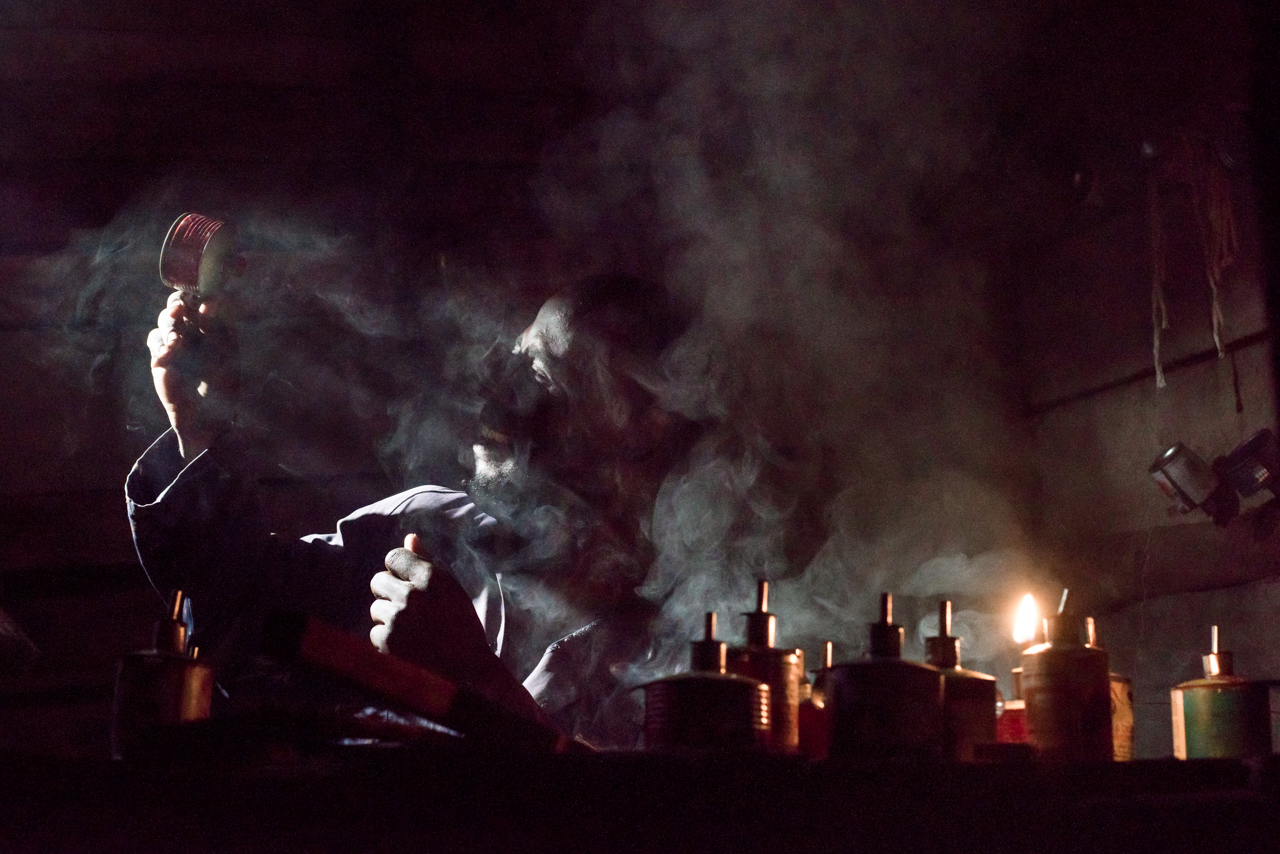
Robert, an ironmonger in Kiteezi, Kampala, makes small kerosene lamps out of tin cans for a living. He searches in the landfills of Kampala for steel tins which he takes and cleans up, carefully checking them for rust. He uses steel because it can be recycled over and over again indefinitely, with no loss of its essential properties. Once he finds a good can, Robert makes a lid for it from pieces of another can and then carefully inserts a cotton wick through an opening he makes in the new lid. Then he adds a small handle to make the lamp complete. When filled with kerosene these little lamps, known in Luganda as tadooba, provide a steady, though smokey, source of light. Once Robert has a batch ready he goes out on the city streets in search of buyers. His lamps are used by street vendors to light their stalls and in informal housing where electricity is scarce. The kinds of upcycling done by makers like Robert forms the basis of a micro-economy for people living around Kampala's major landfill sites. It allows them to earn a living while helping to reduce waste and protect the environment.
Carol Kagezi is an Arts Journalist with a keen interest in writing about the creative ecosystem in Uganda. She has worked for Cue Media, an annual Arts Magazine covering the National Arts Festival, in South Africa in the capacities of writer, editor and photographer. She is also the Creative Director of an online based magazine and platform, AfroToned.
About the Uganda Press Photo Award
Over the past 11 years, the UPPA has not only celebrated Ugandan photojournalism but also created a platform where Ugandan photographers can connect with other professionals, locally and internationally, as well as exchange and learn varied photography styles and perspectives through different programmes. As the competition has steadily increased in its international presence, it now presents an opportunity for participating photographers to showcase their work on the world stage. Our mission is to see more homegrown talent taking centre stage in the press world. Many of our previous winners have gone on to achieve great success, winning awards, commissions and opportunities, making their voices heard, and as we continue to pursue this aim we continue to expand our reach in the East African region.
The winners of the Uganda Press Photo Award, the East African Photography Award and the Young Photographer Award all receive professional-level camera equipment The prizes awarded are tools of the trade that enable the winners to continue their work and hone their skills. The winners also get exposure through the annual month-long exhibition, as well as in media both online and in print.

